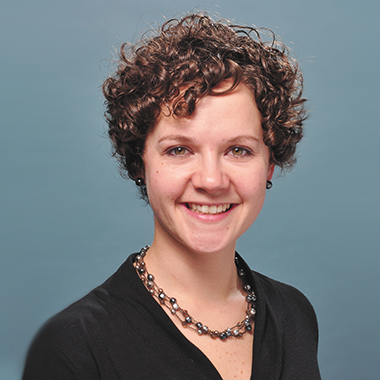¿Cómo pueden los estudios de vacunas y anticuerpos avanzar rápidamente y seguir siendo seguros?
Posts en Español VaccinesPrevent COVID19 video
Prevent COVID19 video

Drs. Lindsey Leininger and Malia Jones take your thorny COVID questions in this Live Q&A! If you have a question, submit it at our website! www.dearpandemic.org. This week we discuss: ➡️ Intro…with TV show rec’s! (0:00 – 3:00) Related link ➡️ The latest on quarantine timelines (3:35 – 8:40) Related link ➡️ Handling conspiracy theories Read more…
A: They are VERY different. In short – COVID-19 is more deadly, more people are susceptible to it, we have fewer treatments, and even “mild” bouts can leave long-term symptoms. To address the elephant in the room: **COVID-19 is MUCH deadlier than the flu.** In fact, since December 2019, COVID-19 has killed more people in Read more…

A: Taking care of yourself and focusing on getting better is priority #1! Get rest, stay hydrated, isolate physically but connect emotionally, and watch out for warning signs. COVID19 is widespread and more and more folks are getting sick. Now is a good time to remind ourselves of the basics of self-care when diagnosed with Read more…

Today, Dear Pandemic celebrates gratitude. We are so grateful to each and every one of you, our readers, for coming along with us on this strange, surprising, and often difficult journey. We’ve grown so much this past year–as individuals and as a community. We are so grateful for our readers and especially all our volunteers. Read more…

A: Women are currently leaving the labor force at higher rates than men. Mothers account for the starkest declines. To quote social scientists Drs. Kerri Raissian and Jennifer Dineen: “We need to realize that mothers can’t continue to be our shock absorbers.” Context: The steep relative decline in female labor participation – most pronounced among Read more…

In the United States, hundreds of thousands of people are experiencing homelessness each night. There are many reasons why people might be experiencing homelessness: some people are chronically homeless, some were recently evicted or lost their housing, some are leaving a violent situation, and some are staying with friends or family temporarily but might not Read more…

A. TL,DR: Mouthwash won’t prevent or cure COVID-19. Consistent with several prior studies, a recent laboratory-based study out of Cardiff University found that over-the-counter mouthwash (with active ingredient cetylpyridinium chloride [CPC]) will inactivate 90-99% of the coronavirus after a mere 30 seconds. Sounds exciting! …but don’t get your hopes up. The clinical relevance of mouthwash Read more…

Michelle Kinder is an immunologist whose research has primarily focused on how to harness the immune system to fight cancer. She received her Ph.D. in Immunology at University of Pennsylvania and completed a postdoctoral fellowship at Washington University in St. Louis. She has worked for a number of years in the private sector developing therapies Read more…
A: Avoid sharing indoor air with anyone outside your household, ESPECIALLY in large groups. Even a medium-sized gathering, like an extended family trip to a cabin, can be a recipe for aerosol transmission of COVID-19 with people spending a long time together in poor ventilation. A superspreader event is one in which many people are Read more…

A: Despite a significant respite over the summer compared to the U.S., the COVID-19 wildfire is again raging in most of Europe. But unlike the U.S., Europe *might* be showing some signs of bending the curve. What happened, if Europe was doing so well over the summer? Like some regions of the US, not all Read more…

A: Space, staff, and stuff… “You need all three, and if you don’t have one, it doesn’t matter if you have the other two.” This quote from Michigan-based emergency physician Dr. Madshid Abir (NPR article link) highlights what it takes to keep a hospital system humming. Unfortunately, shortages across the three S’s have thrown numerous hospital Read more…

A: No. Evidence on the longevity and strength of the immune system response to SARS-CoV-2 remains inconclusive. Previous infection does not give you an “immunity passport”. All individuals should continue to follow SMART precautions, particularly during the holiday season. Here is what we know to date. Antibody testing alone is an insufficient measure of immunity. Read more…

A: Another Monday, another ray of light breaking through the COVID-19 storm cloud. The news is good, but we must still BE PATIENT and HUNKER DOWN for the winter. Fresh on the heels of the happy Pfizer/BioNTech news from last week, Moderna announced an efficacy of *94.5%* in the first look at data from the Read more…

A: As of today, 58%. Maybe rethink your plans? We know many folks in the wonderful Dear Pandemic community are “running the numbers” on their holiday dinners to assess risk and adjust accordingly. To assist your calculations, a team at Georgia Tech led by Dr. Joshua Weitz has developed the COVID-19 Event Risk Assessment Planning Read more…

Drs. Malia Jones and Lindsey Leininger tackle your thorny COVID questions in this week’s Facebook Live event! Submit your questions in advance at www.dearpandemic.org. Today we tackle: ➡️ Happy Saturday greetings (0:00 – 1:59) ➡️ Pfizer vaccine news – yay hope! (2:00 – 6:50) ➡️ What settings seed viral spread? (6:54 – 15:59) ➡️ Pandemic Read more…

R: Hasta ahora, parece que la reinfección a corto plazo de SARS-CoV-2 es posible, pero esperemos que sea rara y no frecuente. Una pregunta clave desde el comienzo de la pandemia ha sido la duración de la inmunidad para el SARS-CoV-2. Los virus como el sarampión pueden proveer inmunidad de por vida, pero la inmunidad Read more…

A: Today marks 14 days until Thanksgiving 2020, a holiday different from years past and Thanksgivings of the future. With community spread rapidly increasing across much of the country, self-quarantine is an essential tool in decreasing transmission of SARS-CoV-2 at holiday gatherings. If you plan to visit with people outside your home for Thanksgiving 2020, Read more…

A: The risk of ending up in the hospital for COVID-19 varies quite a bit by age. Based on data from the state of Wisconsin, the chances of being hospitalized (given that you’ve had a positive test for COVID-19) range from 1 in 100 for kids to 1 in 3 for people aged 80 and Read more…

A: Testing samples of wastewater and pooled spit in places with communal living, such as colleges and universities, provide several valuable benefits in detecting COVID-19. TESTING OF ASYMPTOMATIC PEOPLE. When people are living and socializing together in the same building, there is a risk of asymptomatic spread. If you wait until people are symptomatic to Read more…